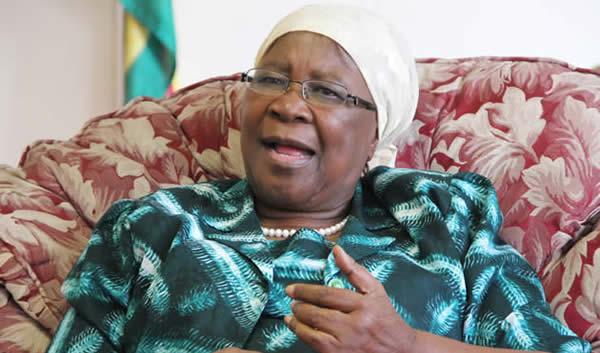Uproar over non-Ndebele speaking teachers
By Vusumuzi Dube
ACADEMICS and the Bulawayo Provincial Education office have expressed concern over the employment of non-Ndebele speaking teachers in primary schools in the Matabeleland region saying this was contributing to the low pass rate at these schools.

Speaking during a workshop on indigenous languages and non-fiction writing, organised by the Zimbabwe Academic and Non-fiction Authors Association (Zana) Bulawayo chapter last Saturday, deputy provincial education director for Bulawayo province, Mr Richard Swene, stirred a hornet’s nest when he blasted the Civil Service Commission for employing primary school teachers whose first language was not Ndebele.
He said it was essential to realise that teaching children between the ages of seven and nine was essential as this was the only way to fully introduce them to the education system thus the only way to do such was to teach them in a language which they understood.
“Our primary education policy clearly stipulates that children between the ages of seven and nine must be taught in their mother tongue. It becomes impossible for us to achieve good results when we have non-Ndebele speaking teachers teaching these young children.
“My child who is currently a doctor, during his studies at one of these universities in the Mashonaland region told me that when he started there the lecturers were teaching in Shona, my advice to him was to simply hang in there because it is their region. Therefore we must also take advantage of that within our schools in the region because naturally it is easy to understand something that you are being taught in your mother tongue,” said Mr Swene.
The deputy provincial education director said the onus was on the Civil Service Commission (CSC) to employ more Ndebele speaking teachers especially at primary school level.
“One thing we must always have in mind is that the mother tongue is always in the centre of development, it is also disappointing that even our institutions in the Matabeleland region do not offer indigenous languages courses or at least train our teachers that is why you find people have to travel all the way to Gweru just to learn Ndebele, which in itself causes all these problems we are facing.
“The fact that we allow our primary school children to be taught by teachers with Shona as their first language proves that we are in a crisis. We must take a cue from our national constitution which recognises 16 official languages and ensure that as civil servants we accept this and continue nurturing our mother tongue,” said Mr Swene.
Speaking at the same workshop, a teacher at a Nkayi primary school claimed the situation was even worse in the rural areas as at the school he taught he was the only Ndebele speaking teacher, the rest being Shona-speaking teachers.
“The situation is more pathetic in the rural areas because you find us spending most of our time assisting our counterparts, because they will be failing to teach the children in Ndebele, at the end of the day you find people talking about the low pass rate but what you should understand is that this is not done on purpose,” said the teacher who declined to be named for professional reasons.
A few months ago Minister of State for Provincial Affairs in the Metropolitan Province of Bulawayo, Nomthandazo Eunice Moyo, shot down a proposal in the National Assembly that locals should be given preference in employment and education opportunities.
The minister argued that she was not a tribalist hence she would not support such calls.
Moyo was quoted as saying: “First of all, I am not a tribalist. Secondly, I serve Zimbabwe. Thirdly, I will support anyone who has the right documents to occupy a vacancy.”
Her statement was met with mixed feelings from educationists and analysts who accused the Government of letting down the education sector by creating a handicap that could easily be avoided, which goes on to affect the overall pass rate within the schools.
Meanwhile, speaking at the same workshop, Provincial Education Director for Bulawayo Province, Mr Dan Moyo, urged authors in Bulawayo to embrace the culture of writing in indigenous languages stating that it was the only way of promoting local cultures.
He said in the past there has been an outcry that the so-called minority languages were not recognised and were playing second fiddle to English, Ndebele and Shona languages in the country but the Government had recognised 16 official languages in the constitution.
“Zimbabwe, being a nation of diverse people has according to the constitution 16 officially recognised languages. The constitution states that the State and all institutions and agencies of Government at every level must take into account the language preferences of people affected by governmental measures .It is also the prerogative of the State to promote and advance the use of all languages used in Zimbabwe, including sign language”, he said. Sunday News






